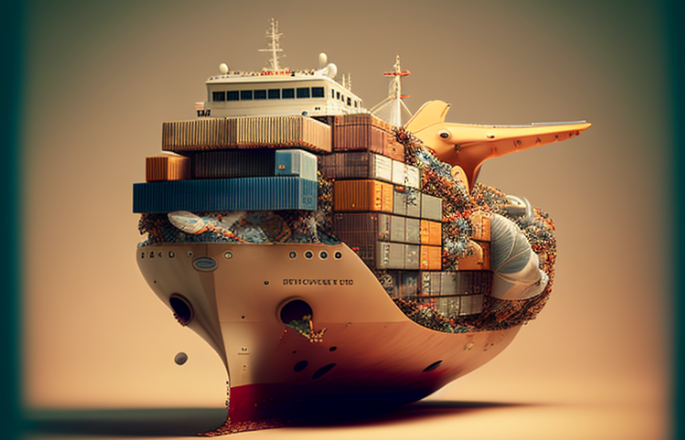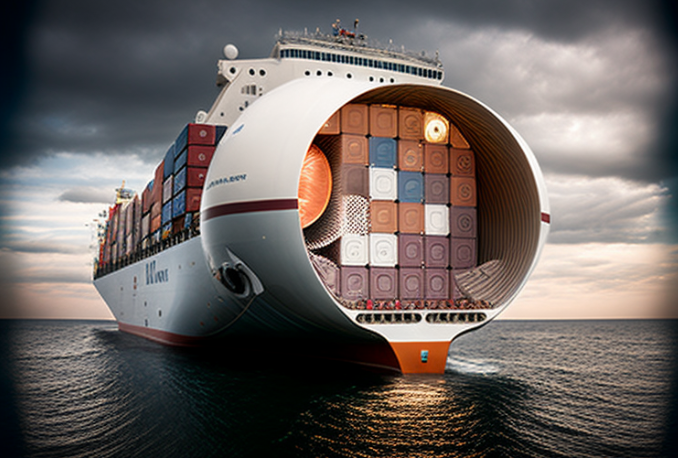The transportation of goods between China and the United States is a critical component of global trade, accounting for a significant portion of the world’s freight transportation. As the demand for faster, safer, and more efficient transportation grows, innovations in automation, robotics, and artificial intelligence (AI) are transforming the freight transportation industry. In this article, we will explore the latest trends in automation, robotics, and AI in China-USA freight transportation. We will examine the advantages of these innovations, the technologies being used, and the challenges and opportunities of implementing them. With the potential to revolutionize the transportation industry, these innovations offer a glimpse into the future of China-USA freight transportation. But not only innovation is important, but it is also important to choose the right supplier, click here now to do it for free.
Automation in China-USA Freight Transportation
Automation in China-USA Freight Transportation refers to the use of technology to automate different aspects of the freight transportation process. Automation can significantly improve the efficiency of the transportation process, reduce the risk of accidents, and lower the cost of transportation. In recent years, there has been a significant increase in the use of automation in China-USA freight transportation.
Advantages of Automation in China-USA Freight Transportation
The primary advantage of automation in freight transportation is increased efficiency. Automation can significantly reduce the time and labor required to move goods from one location to another. Automated systems can also operate around the clock, increasing the speed of transportation and reducing delays.
Automated systems can detect and respond to potential safety hazards, reducing the risk of accidents. For example, automated systems can detect changes in temperature, humidity, or pressure, which can impact the quality of certain types of cargo.
Technologies Used in Automation in China-USA Freight Transportation
There are various technologies used in automation in freight transportation, including:
- Autonomous vehicles: Self-driving trucks and ships are becoming increasingly common in freight transportation. Autonomous vehicles can operate around the clock, reducing the time required to transport goods.
- Robotics: Robotics technology is used in freight transportation for a wide range of tasks, including loading and unloading cargo, sorting packages, and tracking shipments.
- Warehouse automation: Automated storage and retrieval systems are commonly used in freight transportation to manage the movement of goods in and out of warehouses.
The use of automation in China-USA freight transportation is rapidly expanding, with more and more companies adopting innovative technologies to improve efficiency and reduce costs. As these technologies continue to develop, the transportation of goods between China and the United States is likely to become faster, safer, and more efficient than ever before.
Robotics in China-USA Freight Transportation
Robotics technology is playing an increasingly important role in China-USA Freight Transportation. Robotics refers to the use of machines that can perform tasks autonomously, without human intervention. Robotics technology is being used in a wide range of applications in the freight transportation industry, including loading and unloading cargo, sorting packages, and tracking shipments.
Advantages of Robotics in China-USA Freight Transportation
The primary advantage of robotics in freight transportation is increased efficiency. Robots can perform tasks faster and more consistently than humans, reducing the time required to transport goods. Robotics can also help to reduce labor costs and increase safety in the transportation of goods.
Types of Robots Used in China-USA Freight Transportation
There are several types of robots used in freight transportation, including:
- Automated Guided Vehicles (AGVs): AGVs are robotic vehicles that can move independently around a warehouse or distribution center. They are commonly used for material handling tasks such as moving cargo between loading docks and storage areas.
- Palletizing robots: Palletizing robots are used to stack and organize cargo onto pallets for efficient transport. These robots can work around the clock, increasing the speed of transportation and reducing delays.
- Automated storage and retrieval systems (AS/RS): AS/RS systems are automated systems used for the storage and retrieval of goods in warehouses. These systems can significantly reduce the time and labor required for these tasks, improving the efficiency of the transportation process.
As the use of robotics in China-USA freight transportation continues to grow, we can expect to see even more innovative applications of this technology in the future. Robotics has the potential to revolutionize the transportation industry, improving efficiency, safety, and reliability in the transport of goods between China and the United States.
Artificial Intelligence in China-USA Freight Transportation
Artificial intelligence (AI) is revolutionizing China-USA freight transportation by enabling machines to learn and make decisions without explicit programming. AI has been a game-changer in many industries, including transportation, by optimizing routes, predicting demand, and identifying maintenance issues.
Advantages of AI in China-USA Freight Transportation
The primary advantage of AI in freight transportation is increased efficiency. AI can analyze large amounts of data and make decisions in real-time, leading to more efficient transportation processes. For example, AI can optimize routes, load capacity, and delivery schedules to minimize delivery times and reduce costs. AI can also help to reduce the risk of accidents by analyzing data in real-time and alerting drivers to potential hazards.
Types of AI Used in China-USA Freight Transportation
There are several types of AI used in freight transportation, including:
- Machine learning: Machine learning is a type of AI that enables machines to learn from experience without being explicitly programmed. Machine learning algorithms can be used to predict demand, optimize routes, and identify maintenance issues.
- Natural language processing: Natural language processing is a type of AI that enables machines to understand and interpret human language. This technology is used in customer service applications, such as chatbots, to provide customers with real-time information about their shipments.
- Computer vision: Computer vision is a type of AI that enables machines to interpret visual data, such as images and video. This technology is used in freight transportation for a variety of tasks, including package recognition, cargo inspection, and security monitoring.
As the use of AI in China-USA freight transportation continues to expand, we can expect to see even more innovative applications of this technology in the future. AI has the potential to transform the transportation industry by improving efficiency, reducing costs, and increasing safety in the transport of goods between China and the United States.
Conclusion
Automation, robotics, and artificial intelligence are transforming China-USA freight transportation. These innovative technologies are improving efficiency, saving money and increasing safety in the transport of goods between China and the United States. Automated guided vehicles, palletizing robots, and automated storage and retrieval systems are just a few examples of the robots that are being used in the freight transportation industry. Meanwhile, machine learning, natural language processing, and computer vision are just a few examples of the AI technologies that are being used to optimize routes, predict demand, and identify maintenance issues. As the industry continues to evolve, we can expect to see even more innovative applications of these technologies in the future. By embracing automation, robotics, and AI, the China-USA freight transportation industry can improve its competitiveness, reduce its environmental impact, and better serve the needs of its customers.
Automation can improve efficiency, reduce costs, and increase safety in the transport of goods between China and the United States.
Examples of robots being used in the industry include automated guided vehicles, palletizing robots, and automated storage and retrieval systems.
Machine learning, natural language processing, and computer vision are just a few examples of the AI technologies being used to optimize routes, predict demand, and identify maintenance issues.





